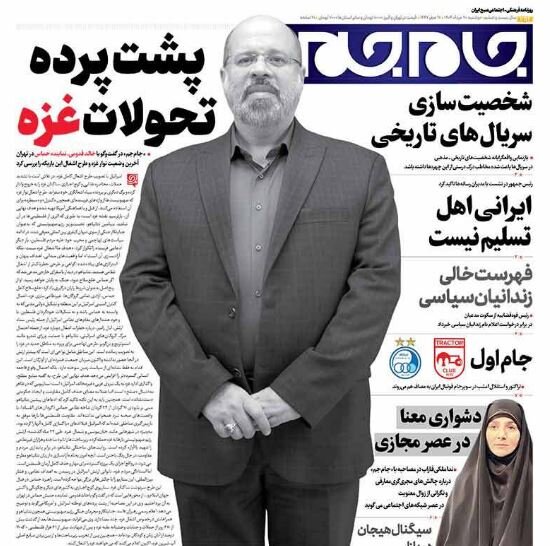Iran's economic diplomacy in post-war period

TEHRAN - Dr. Davoud Manzoor, former head of the Planning and Budget Organization analyzes Iran's economic diplomacy in the post-war period with the Jam-e-Jam newspaper.
He said: In light of the ongoing military threats from the United States and Israel and after the recent direct attack on Iran's nuclear facilities, the need to adopt policies beyond a military response to create deterrence has increased sharply. One of the key tools in this regard is economic diplomacy, a tool that, if used intelligently and purposefully, can increase the costs of military action against Iran for the aggressors and their regional allies and create a structural barrier to repeating such attacks. Strengthening Iran's role in regional transit and energy corridors is one of Tehran’s strategic policies in confronting the U.S.-Israeli hybrid war. Even under sanctions, Iran enjoys a privileged geographical opportunity in the transit of goods, energy, electricity, and transportation services. The starting point of economic diplomacy under sanctions is strengthening domestic foundations. Without exchange rate stability, inflation control, and reduced risks in the banking and legal systems, no foreign economic agreement will last.
Hamshahri: Setting new frameworks for Tehran-IAEA cooperation
In a note, Hamshahri discussed the visit of the deputy director general of the International Atomic Energy Agency (IAEA) to Iran after military strikes on Iran’s nuclear sites by Israel and the United States during the 12-day war in June. The paper said: What is important about the deputy director general's visit to Iran is to set new frameworks for a new round of cooperation between Tehran and the Agency. However, as Araghchi emphasized, visiting any nuclear facility will not be on the agenda until new frameworks for cooperation are determined. The quality of cooperation between Tehran and the IAEA prior to the 12-day war proved detrimental to Iran in terms of security, especially as the release of the “unrealistic” report about Iran’s nuclear program by the IAEA paved the way for the Zionist regime aggression against Iran. This issue got more complicated as the Agency was silent about the Zionist regime’s attack on Iran’s nuclear sites (which are banned under the Vienna conventions). Such an approach prompted the Iranian parliament to take an important step to restore Iran’s legal rights, approving a legislation that set certain conditions for cooperation with the Agency. Thereby, the visit by Grossi’s deputy to Tehran falls within this legislation which sets a new framework for cooperation.
Sazandegi: Caucasian peace with American signature
Sazandegi wrote about the signing of peace deal in the White House between Armenia and the Republic of Azerbaijan according to which the two sides reached an agreement on the Zangezur Corridor a mediation by the United States: The Islamic Republic of Iran has always opposed any geopolitical change in its northern borders, especially the creation of the Zangezur Corridor. Tehran believes that this route could upset the regional balance of power and even endanger Iran's transit routes to Europe. For this reason, although the Iranian Foreign Ministry welcomed the "finalization of the text of the peace agreement" and evaluated it as an "important step for a lasting peace," at the same time it warned that any foreign intervention, especially in the vicinity of the joint borders, could threaten security and stability. Some experts and observers consider an active presence of the United States in the corridor project will help increase the influence of Washington and its allies in the South Caucasus; an issue that, in addition to limiting the role of Iran in terms of transit, also conflicts with the interests of Russia and China. Such a change could be part of the U.S.'s grand strategy to reduce the influence of Tehran and Moscow on Eurasia communication routes.
Iran: First suspend confrontation, second exit from blacklist
In an interview with Hadi Khani, head of the Financial Intelligence Center (FIC) at the Iranian Ministry of Economy, the Iran newspaper discussed the agenda of negotiations with the Financial Action Task Force (FATF). He said: Six years after Iran's entanglement with the FATF, it now appears that new developments are underway. The Financial Action Task Force has officially invited the head of Iran's Financial Intelligence Center for in-person negotiations, aiming to take steps toward normalizing the Iran case. It seems that a large part of the new space for dialogue with international institutions is due to the ratification of the so-called "Palermo" convention, which had remained in the midst of Iran's political and legal conflicts for years. We have a joint action plan with the FATF. We must implement this in full. Implementing this plan is certainly a time-consuming process. But what is certain is the suspension of confrontational measures. Exiting the blacklist is the second priority. The first priority is confrontational measures, which must be suspended. The FATF's condition for suspension is ratification of the Palermo and CFT conventions. This decision-making requires follow-up and lobbying, and networking needs to be done. But for now, the Palermo Convention has been ratified, and we hope to improve our interaction space with the FATF.
